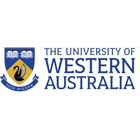Master of Infectious Diseases
- publicado por The University of Western Australia (UWA)
- Home
- Courses
- The University of Western Australia (UWA)
- Master of Infectious Diseases
Master of Infectious Diseases
This course provides advanced training, knowledge and skills in the field of infectious diseases including topics in Medical Microbiology, Tropical Infectious Diseases and Public and Environmental Health Microbiology. One of only a few courses in the world to offer a combination of coursework and research units, you will be equipped…
Categories
COURSE DESCRIPTION
This course provides advanced training, knowledge and skills in the field of infectious diseases including topics in Medical Microbiology, Tropical Infectious Diseases and Public and Environmental Health Microbiology.
One of only a few courses in the world to offer a combination of coursework and research units, you will be equipped with a diverse range of work-ready skills.
With infectious diseases on the rise, now more than ever there is a greater demand for research into the management of these diseases. The Master of Infectious Diseases provides you with the knowledge and skills to accurately identify pathogens and develop policies for the prevention and immunity of infectious diseases.
Course structure
Postgraduate coursework degrees and combined (coursework and research) degrees comprise a number of units.
Career Pathways
This course is aimed at science-based and medical professionals intending to work in research and hospital diagnostic laboratories, medical clinics, government health departments and international agencies.
Further Study
Once a Master of Infectious Diseases is complete, further study can be undertaken with a Doctor of Philosophy (PhD). This involves independent, supervised research in a specialised discipline of infectious diseases. The PhD is assessed solely on the basis of a thesis that demonstrates mastery of the subject and an advancement in that field of knowledge.
REQUIREMENTS
(a) a relevant bachelor’s degree1, or an equivalent qualification, as recognised by UWA; and(b)(i) the equivalent of a UWA weighted average mark of at least 60 per cent in the Level 3 units; or(ii) at least three years of relevant full-time professional experience; or(iii) evidence of adequate research outputs, as recognised by UWA.And(c) for students who have completed 48 points of the Graduate Diploma in Infectious Diseases, a course UWA weighted average mark of at least 60 percent1A relevant bachelor’s degree includes a Bachelor of Biomedical Sciences, or Bachelor of Science in a biomedical or biological discipline, Bachelor of Medicine and Bachelor of Surgery, Bachelor of Dental Science, or a bachelor’s degree in applied biomedical science or public health (medical technology, nursing, pharmacy, public health, and veterinary science).
English language requirements:
TOEFL (paper-based): 570 with a Test of Written English (TWE) of no less than 4.5
IBT TOEFL (Internet-based test score): 82 with 22 for writing, 20 for speaking, 20 for listening, and 18 for reading
IELTS (Academic): 6.5 (no band lower than 6.0)
Cambridge Certificate of Proficiency in English: C pass
Cambridge Certificate in Advanced English: B grade
Pearson Test of English (PTE) (Academic): Overall score of 64 with a minimum score of 64 in the Reading and Writing sections, 59 in the Speaking section and 54 in the Listening section
EDUCATIONAL INSTITUTION
The University of Western Australia (UWA) is a proud member of the Group of Eight and is the only university in Western Australia to be ranked in the world top 100 universities (QS World University Rankings 2023).UWA’s main campus is located in Perth, Western Australia and is home to more than 23,000 students. Perth is Australia’s fourth-largest city with over two million people from a variety of cultures worldwide, a strong economy and vibrant lifestyle. Perth is one of the country’s most affordable cities, the closest major Australian city to Asia, and in the same time zone as most of Asia.
The University of Western Australia (UWA) is a proud member of the Group of Eight and is the only university in Western Australia to be ranked in the world top 100 universities (QS World University Rankings 2023).
UWA’s main campus is located in Perth, Western Australia and is home to more than 23,000 students. Perth is Australia’s fourth-largest city with over two million people from a variety of cultures worldwide, a strong economy and vibrant lifestyle. Perth is one of the country’s most affordable cities, the closest major Australian city to Asia, and in the same time zone as most of Asia.

